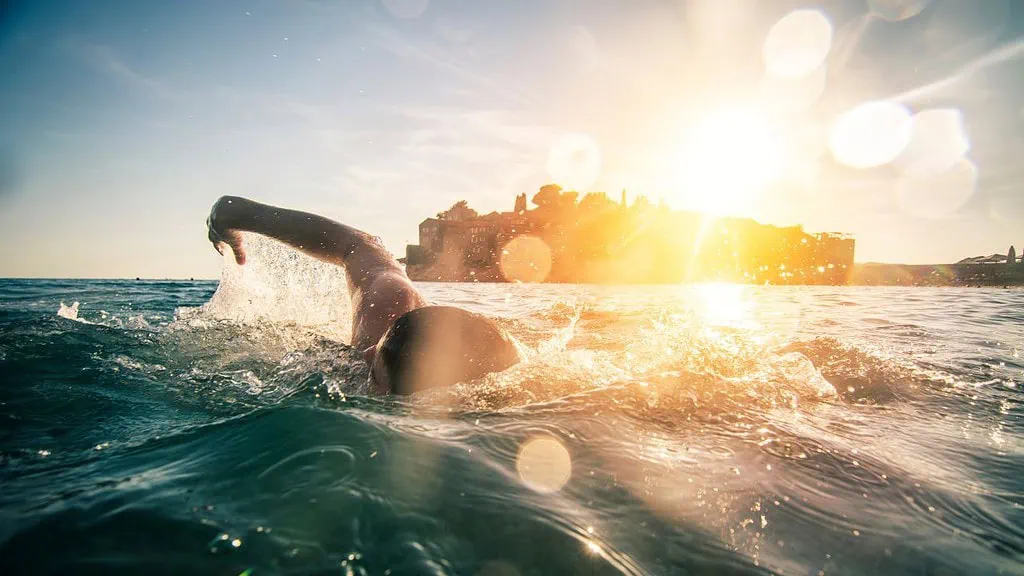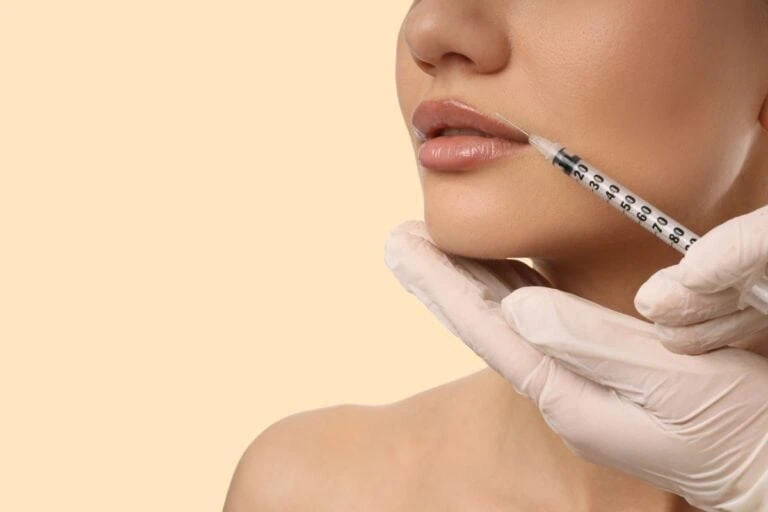
Swimming is one of the most popular forms of exercise, offering a range of benefits from improved cardiovascular health to a full-body workout. Whether you’re diving into a refreshing swimming pool or taking a dip in the sea, water is a great way to cool off and stay active. But while both environments provide a unique experience, they also affect your skin in different ways. In this blog, we’ll explore the effects of swimming in both swimming pools and sea water, and how after-sun care and hydration IV therapy can help restore and protect your skin.
1. Swimming Pools: Chlorine and Dry Skin
Swimming pools are often filled with chlorinated water to keep them clean and free from harmful bacteria. However, chlorine, while effective at disinfecting, has a few side effects on your skin:
- Dehydration: Chlorine can strip your skin of its natural oils, leading to dryness. When the skin loses its protective moisture barrier, it can become dry, itchy, and tight. This is particularly noticeable for people with sensitive or dry skin.
- Skin Irritation: Extended exposure to chlorine can irritate the skin, causing rashes or exacerbating conditions like eczema. If you notice red, irritated patches after swimming, chlorine could be the culprit.
- Premature Aging: Regular exposure to chlorinated water can contribute to premature aging. The drying effects of chlorine can make the skin more prone to wrinkles and fine lines over time.
- Eye and Hair Effects: Chlorine can also irritate your eyes, causing redness and discomfort. Additionally, it can lead to dry, brittle hair if you swim frequently without protection.
2. Sea Water: Salt and Natural Healing
On the other hand, sea water offers a completely different experience for your skin. While many people enjoy the therapeutic properties of saltwater, it also comes with its own set of effects:
- Dehydration: Sea water contains high levels of salt, which can draw moisture out of your skin, leading to dehydration. After swimming in the sea, you might notice your skin feels tight and dry. The salt absorbs the water from your skin’s surface, leaving it feeling parched.
- Natural Exfoliation: One benefit of swimming in the sea is its natural exfoliating effect. The salt and minerals in the water can gently scrub off dead skin cells, leaving your skin feeling smoother and softer. This can also help cleanse the pores and promote clearer skin.
- Skin Irritation: For those with sensitive skin, saltwater can sometimes cause irritation, especially if you have cuts or abrasions on your skin. The salt can aggravate these wounds, causing discomfort or stinging.
- Sun Sensitivity: If you’re swimming in the sea, you’re often exposed to direct sunlight, which, combined with saltwater, can make your skin more sensitive to sunburn. The salt in the water accelerates moisture loss, which makes your skin more vulnerable to UV damage.
3. Comparisons: Chlorine vs. Saltwater on Your Skin
| Effect | Swimming Pool (Chlorine) | Sea Water (Saltwater) |
|---|---|---|
| Dehydration | Chlorine strips natural oils from skin, leading to dryness | Saltwater draws moisture out of skin, causing tightness and dryness |
| Skin Irritation | Can cause rashes, eczema flare-ups, or allergic reactions | Saltwater can irritate open wounds or sensitive skin |
| Natural Exfoliation | Chlorine can be harsh, causing the skin to lose moisture | Saltwater provides a gentle exfoliation, removing dead skin cells |
| Skin Aging | Chlorine accelerates skin aging by stripping moisture | Saltwater’s drying effect can contribute to premature aging if not moisturized |
| Hydration Needs | Moisturizing is essential after chlorine exposure | Saltwater requires moisturizing to restore moisture levels |
| Sun Sensitivity | Less of an issue unless swimming outdoors | Increased risk of sunburn due to dehydration and saltwater exposure |
How to Protect Your Skin in Both Environments
Both swimming pools and sea water can impact the health and hydration of your skin. Here are some tips to help protect your skin in either environment:
- Rinse Before Swimming: Rinse your skin with fresh water before you jump in. This helps reduce the amount of chlorine or saltwater that gets absorbed into your skin.
- Shower After Swimming: Always rinse off after swimming, especially in chlorinated pools, to remove any residual chlorine or salt from your skin. This will help minimize dryness and irritation.
- Use Moisturizer: Hydrating your skin after swimming is crucial, whether you’ve been in a pool or the sea. Apply a rich moisturizer to replenish the skin’s moisture barrier and keep it soft and supple.
- Wear Protection: Consider wearing a swim cap to protect your hair and goggles to shield your eyes from chlorine. Additionally, always wear sunscreen if swimming in the sea to protect your skin from UV damage.
- Stay Hydrated: Drinking plenty of water will help maintain your skin’s hydration levels from the inside out, which is especially important after swimming in saltwater or chlorine.
Can After-Sun and Hydration IV Therapy Help?
Both after-sun care and hydration IV therapy can be incredibly effective in helping your skin recover after swimming, whether you’ve been in a pool or the sea.
- After-Sun Care: After-sun products are designed to soothe, hydrate, and repair skin that has been exposed to the drying effects of chlorine or saltwater. Ingredients like aloe vera, vitamin E, and glycerin can help replenish lost moisture, calm irritation, and reduce inflammation. Applying after-sun care immediately after swimming can help restore the skin’s hydration and reduce discomfort caused by sun exposure or dehydration.
- Hydration IV Therapy: Hydration IV therapy is a fast and efficient way to rehydrate your body and skin after long exposure to sun and water. This therapy delivers fluids, electrolytes, and sometimes vitamins directly into your bloodstream, providing quicker rehydration compared to drinking water. It helps replenish lost fluids, balance electrolytes, and relieve symptoms of dehydration, which can be especially beneficial after swimming in saltwater or spending time in the sun.
Final Thoughts
Whether you prefer swimming in a controlled pool environment or in the open, natural sea, both have unique effects on your skin. While chlorine can cause dryness and irritation, sea water’s salt can also strip moisture from the skin, leading to tightness and dehydration. However, both environments offer benefits, like natural exfoliation and improved circulation.
To keep your skin healthy, be sure to moisturize after swimming, stay hydrated, and protect your skin from the sun. After-sun products and hydration IV therapy can provide excellent support in rehydrating and soothing your skin after exposure to either swimming pool or sea water. By taking these precautions, you can enjoy the benefits of swimming while keeping your skin looking and feeling its best.
Click here to check our IV Therapy.
Since you are interested in effects of sea water on our skin, you may be interested in finding out why post-rain swimming causes itch. Click here to read more on this topic.



